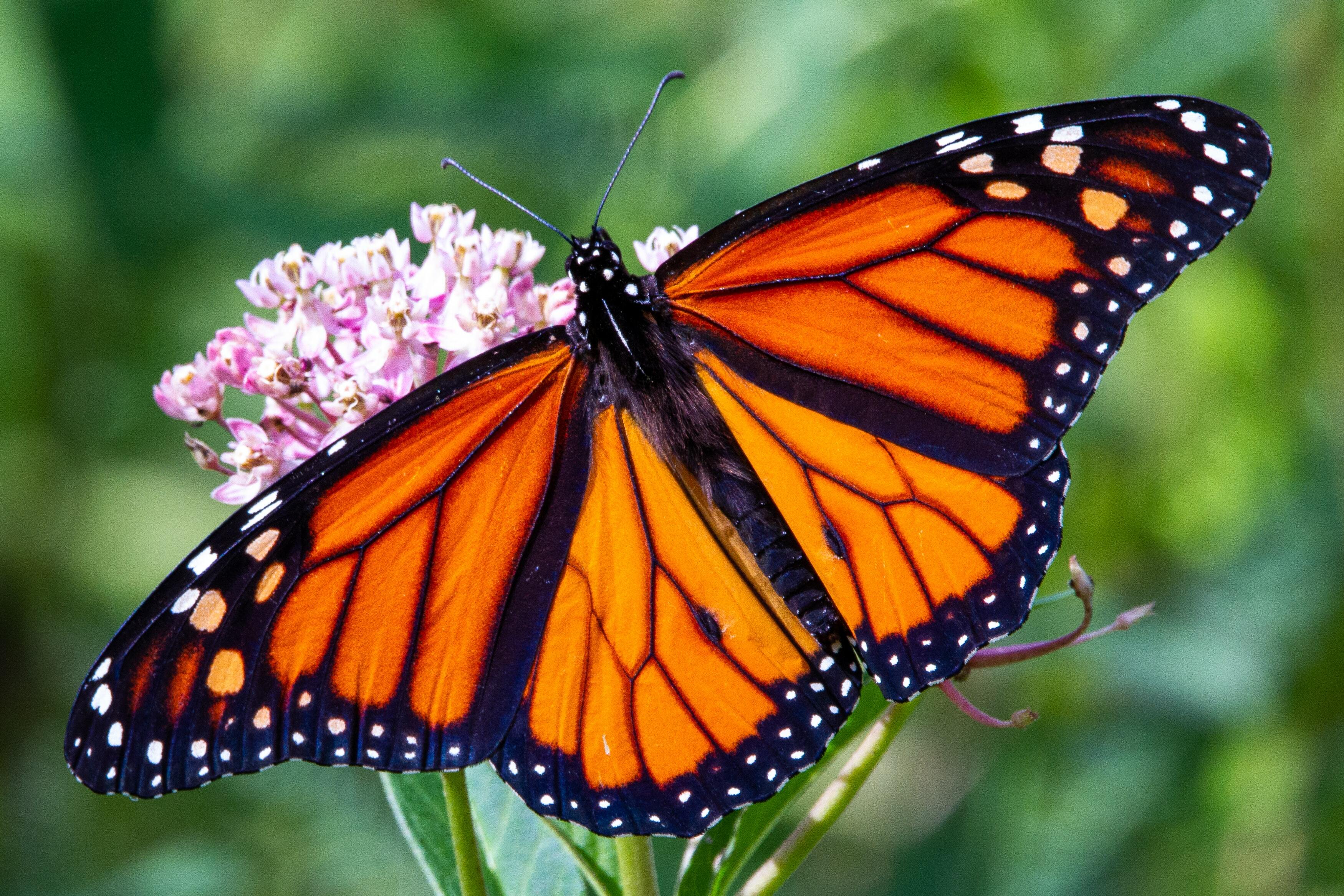
Many people enjoy seeing butterflies in our Landis gardens. especially the monarch butterfly, Danaus plexippus. Besides having a beautiful appearance, the monarch has an important ecological role. It serves as a pollinator for food crops as it migrates across the North American continent. While the monarch can serve as a food source for birds, spiders, and ants, the larvae feed exclusively on milkweed and consume protective cardiac glycosides, making them unpalatable.
The monarch migrates each spring from the southwestern United States and Mexico, traveling to the American Midwest and as far north as Canada. These butterflies typically arrive at Landis by mid-summer and migrate back southwesterly in September to complete their life-cycle. While at Landis, the Monarch butterfly feasts on nectar from our abundant offerings including Eupatorium maculatum (Joe Pye weed), Solidago sp. (goldenrod), Echinacea sp.(coneflowers), Daucus carota (wild carrot), Cirsium sp. (thistles), and Asclepias spp. (milkweeds).
Though the monarch butterfly will enjoy an array of flower nectars, its larvae or caterpillar stage feed exclusively on milkweed. At Landis, we have three varieties of milkweeds growing: Asclepias syriaca (common milkweed), Asclepias incarnata (swamp milkweed), and Asclepias tuberosa (butterfly weed). Strategically planted near one another, these plants begin to bloom in summer and continue through August. If deadheaded, the plants may continue to flower into autumn.
Common milkweed spreads by seed and rhizome, the plant’s underground runner-like roots. It is a great plant choice to fill large vacant spaces, especially with other strong-willed native plants like aster, solidago and wild carrot. While it can run wild in a tame garden bed, it can be somewhat controlled by removing the seed pods before they open. Much of the plant is actually an edible vegetable when prepared correctly. I have eaten the spring shoots sauteed with butter and garlic, and the pods when harvested young and batter fried can be compared to a mild fried okra.
The swamp milkweed and butterfly weed at Landis are the last plants to emerge, coming up from the ground in June. We have learned through experience that it is important to keep these plants marked to be sure they are not mistaken for weeds. The butterfly weed has gorgeous orange flowers, while our swamp milkweeds are cream colored. They generally bloom at the same time and continue to bloom for up to two months, especially if munched on by some hungry monarch caterpillars.
Unfortunately, populations of monarchs have dramatically declined due to climate change, logging, pesticide use, and habitat loss. Though not federally endangered in the U.S, they are listed as a species of special concern in Ontario, Canada. As recent awareness highlights the decline of important pollinator species across the North American continent, it is easy to see that growing a variety of milkweeds is a sure way to encourage monarch butterflies to stop by and enjoy our gardens. To know they call Landis home, even if only for a short visit during their thousands-of-mile migrations, ignites a childlike wonder and adult appreciation year after year.
